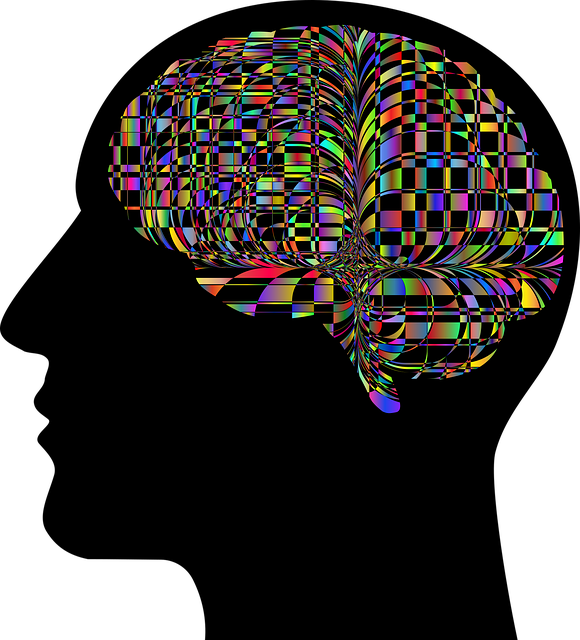Evaluation of mental wellness programs often overlooks spiritual or religious beliefs as a key component of well-being. However, spiritual-religious therapies offer powerful tools for adults seeking improved mental health and self-perception through practices like meditation, prayer, and ritual. These therapies are especially beneficial for individuals seeking meaning and connection beyond traditional talk therapy. Cultural sensitivity is crucial when assessing these interventions, as therapists must tailor practices while respecting diverse beliefs. Integrating quantitative (survey data analysis) and qualitative (interviews, focus groups) techniques provides a complete picture of program effectiveness in therapy for adults with spiritual-religious issues. Measuring success involves standardized assessment tools, client feedback, and monitoring KPIs related to service utilization and satisfaction, ensuring programs remain effective and address diverse needs.
Mental wellness programs are gaining prominence, with a growing emphasis on evaluating their effectiveness. This article explores three critical evaluation methods. We delve into the assessment of spiritual-religious therapies for adult wellness, examining their impact on mental health outcomes. Additionally, we provide a comprehensive overview of quantitative and qualitative techniques, highlighting their unique roles. Finally, we discuss measurement tools and metrics to ensure success in mental health programs, particularly those addressing spiritual-religious issues in adults.
- Assessing the Impact of Spiritual-Religious Therapies for Adult Wellness
- Quantitative and Qualitative Evaluation Techniques: A Comprehensive Look
- Measuring Success: Tools and Metrics for Mental Health Programs
Assessing the Impact of Spiritual-Religious Therapies for Adult Wellness

The evaluation of mental wellness programs often overlooks one significant aspect of human well-being—spiritual or religious beliefs. Spiritual-religious therapies offer unique and powerful tools for adults seeking to enhance their mental health and overall self-perception. Incorporating practices such as meditation, prayer, or ritual can lead to profound personal growth, improved coping mechanisms, and increased life satisfaction. These therapies are particularly beneficial for individuals who seek meaning, purpose, and connection beyond traditional talk therapy.
When assessing the impact of spiritual-religious interventions, cultural sensitivity in mental healthcare practice is paramount. Different cultures have diverse spiritual expressions, and therapists must be adept at tailoring these practices to suit individual needs while respecting their beliefs. Moreover, self-awareness exercises and self-esteem improvement techniques within this framework can foster a sense of inner peace, resilience, and acceptance, ultimately contributing to the holistic healing process.
Quantitative and Qualitative Evaluation Techniques: A Comprehensive Look

In evaluating mental wellness programs, a balanced approach combining quantitative and qualitative techniques offers a comprehensive understanding of their effectiveness. Quantitative methods involve statistical analysis of numerical data collected through surveys, tests, and metrics tracking progress over time. These provide objective insights into program impact, such as measuring improvements in symptoms like anxiety relief or depression prevention, and can help identify trends across a large participant pool.
Qualitative techniques, on the other hand, delve deeper into individual experiences and perceptions. Methods include interviews, focus groups, and narrative essays, allowing participants to express their thoughts, feelings, and personal growth journeys. This approach uncovers nuanced insights into the program’s ability to foster self-awareness exercises and facilitate meaningful change in areas such as spiritual-religious issues. Integrating both approaches ensures a holistic evaluation that captures both the broad trends and individual stories behind mental wellness program success.
Measuring Success: Tools and Metrics for Mental Health Programs

Measuring success is a crucial aspect of evaluating any mental wellness program, ensuring that interventions are effective and positively impacting individuals’ lives. In the context of therapy for adults with spiritual-religious issues, various tools and metrics can be employed to assess progress. One effective method is using standardized assessment tools tailored to specific mental health conditions and religious beliefs. These assessments provide a structured way to gauge changes in symptoms, attitudes, and behaviors over time. For instance, scales measuring religious coping strategies can help evaluate how participants incorporate their faith into healing processes.
Additionally, qualitative feedback from both clients and therapists is invaluable. Communication strategies, such as open-ended interviews or focus groups, allow for deeper insights into the program’s impact on personal growth, self-awareness, and spiritual well-being. This information complements quantitative data, offering a holistic view of success within mental health services, including trauma support and advocacy initiatives. Moreover, regular monitoring of key performance indicators (KPIs) related to service utilization and client satisfaction can guide improvements in mental health policy analysis, ensuring programs remain relevant and effective in addressing diverse needs.
Evaluating mental wellness programs, including those incorporating spiritual-religious therapies for adult issues, is essential for ensuring their effectiveness. By utilizing a combination of quantitative and qualitative methods, we can gain valuable insights into the impact these programs have on participants’ well-being. This includes assessing changes in symptoms, attitudes, and overall life satisfaction. Standardized tools and metrics, such as validated questionnaires and semi-structured interviews, enable us to measure success objectively. Incorporating diverse evaluation techniques allows for a comprehensive understanding of how spiritual-religious therapies benefit adult mental health, ultimately guiding improvements in these vital programs.














